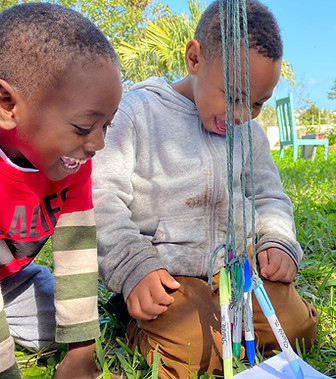

Why
Process Based Learning
Process-based learning is a popular approach to early childhood education that focuses on providing children with authentic, hands-on experiences in their school environment. This approach encourages kids to explore and experiment to learn about the world around them. With this method, teachers guide students through different processes and encourage them to discover new ideas and concepts through trial and error. Children are free to explore their interests and follow their unique learning paths, which helps foster creativity and a love of learning.
Active Learning Encourages Participation
Develops Problem
Solving Skills
Teaches
Resilience


Hands-On Learning
Hands-on learning, often referred to as, experiential learning or learning-by-doing, is a pedagogical approach that immerses students in practical experiences, fostering a deeper connection with the subject matter. This approach diverges from traditional learning methods, which often emphasize passive listening and memorization, and instead encourages students to take an active role in their education. In this learning model, students are given the chance to interact with real-world materials, solve problems, conduct experiments, and participate in collaborative projects.
Cultivate Critical Thinking Skills
Problem-Solving Abilities
Deeper Understanding
Play-Based Learning
Play-based learning is an effective approach for development as it fosters creativity, critical thinking, and problem-solving skills. Through art and exploration, children engage in hands-on activities that stimulate their imagination and encourage self-expression. This type of learning allows them to explore their environment, fostering curiosity and a love for learning. Ultimately, play-based learning nurtures holistic growth, helping children develop socially, emotionally, and cognitively.
Language & Cognitive
Development
Social & Emotional Development
Physical Development
